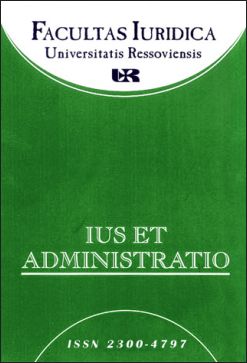The Evolution of Opinions on Government and Politics and Breaking the Sejms in the Thought of Jan Sobieski
Keywords:
Jan III Sobieski, liberum veto, sejm, Noble Republic of Poland, state philosophy, policy, nobles, political doctrine, 17 th century, noble democracyAbstract
Jan Sobieski is one of the most recognizable personality in Polish history. Thanks to military victories the Great Crown Hetman, later the King of Poland became famous across Europe for good. So far military campaigns, foreign policy, dynastic policy, the stormy matrimony with Maria Kazimiera d’Arquien, even cultural patronage were above all the subject of analysis of the historians. Decidedly less space was dedicated to the evolution which took place in Sobieski’s mind about the policy of the Noble Republic of Poland, including the liberum veto institution. Sobieski was a combination of a typical Polish noble and an enlightened monarch, in which he was ahead of his times. His views of the state policy, until now marginalized by the historians, evaluated with the experience he acquired. However, his views were always real and utilities. In this discipline he was not appreciate in his times and in the last few years of his life he had to wrestle with a strong opposition. His ideas however did not disappear. Many of his solutions were used indirectly by the next generations of Polish state philosophers, such as Stanisław Dunin-Karwicki or the king Stanisław Leszczyński, and also the great philosophers of the Polish Enlightenment in the times of Stanisław August Poniatowski and the Great Sejm (1788-1792).
Downloads
Downloads
Published
How to Cite
Issue
Section
License
Copyright (c) 2013 Ius et Administratio

This work is licensed under a Creative Commons Attribution-NonCommercial-NoDerivatives 4.0 International License.

